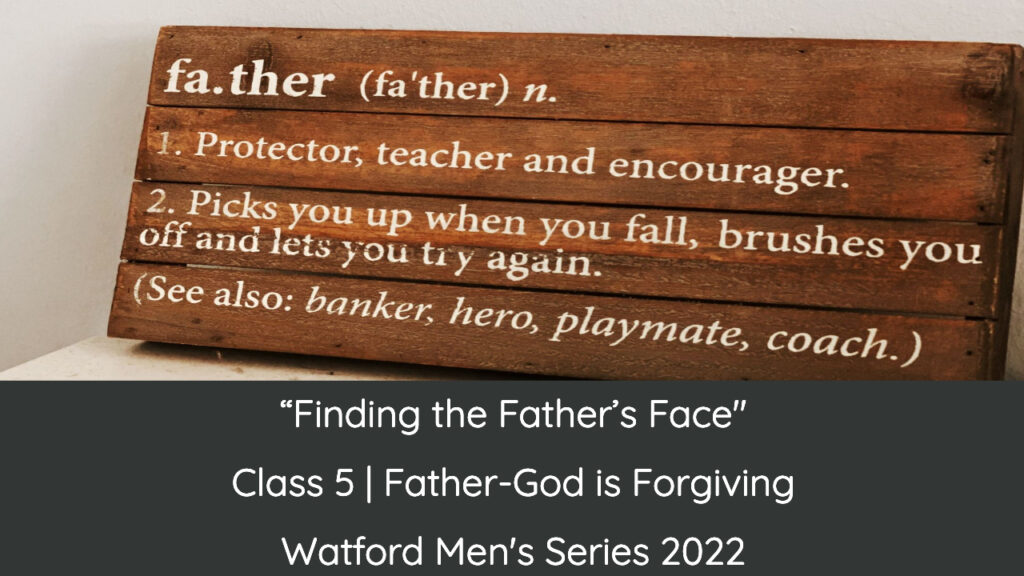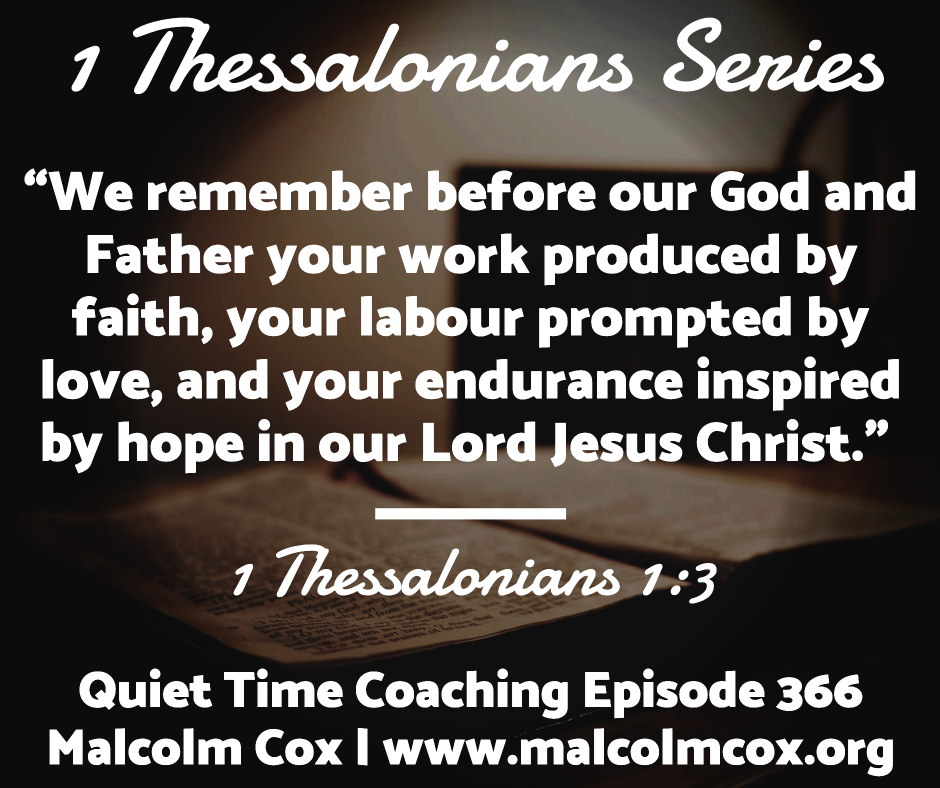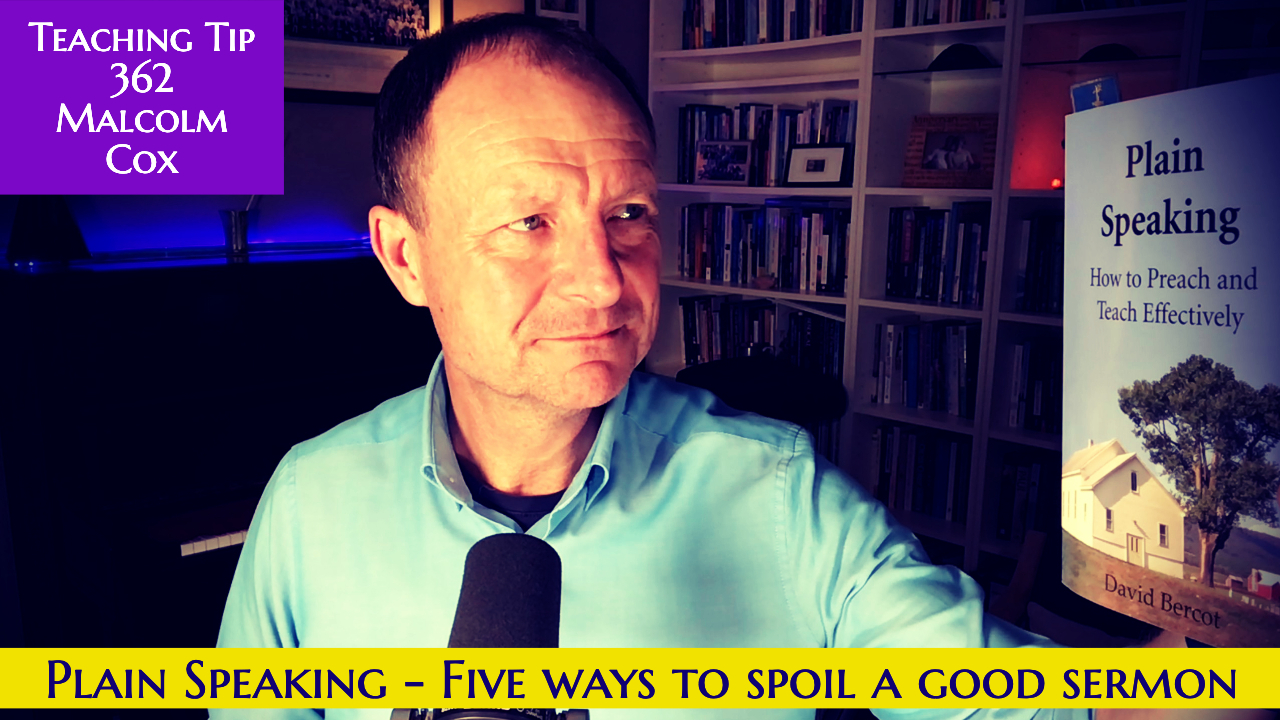
- We can only know the true nature of God as Father from the Scriptures.
- The Lord’s Prayer teaches prayer, but it also teaches us how to relate to God as Father, and what he is like
- This series is designed to help us
- Understand our Father better through what is revealed in the Lord’s Prayer
- Come to know him better & enjoy our Father-God
- Be a more Father-God-like father to our children (if we have them)
- Represent Father-God more accurately to the world and thus make him more attractive for people to get to know
Introduction, Matthew 6:9-13
- ““This, then, is how you should pray: Our Father in heaven Father-God is nearby; hallowed be your name, Father-God is holy; your kingdom come, your will be done, on earth as it is in heaven. Father-God is powerful; Give us today our daily bread.Father-God is caring; And forgive us our debts, as we also have forgiven debtors. Father-God is forgiving
Our Father God is forgiving: Which Scriptures come to mind that fit the following statements?
- Forgiveness is not earned by performance
- “This narrative goes like this: Love and forgiveness are commodities that are exchanged for performance. God’s love, acceptance and forgiveness must be merited by right living. What God most wants is for us not to sin and instead to do good. This narrative is rooted, as all false narratives are, in a half-truth. True, God does not want us to sin, and God does want us to do well. But that is only because sin harms us, and acts of goodness are healing both to us and to the recipients of our goodness.” Smith, James Bryan. The Good and Beautiful God (p. 77). John Murray Press.
- “Then he said, “Jesus, remember me when you come into your kingdom.” Jesus answered him, “Truly I tell you, today you will be with me in paradise.”” (Luke 23:42–43 NIV11-GK)
- “Some men brought to him a paralyzed man, lying on a mat. When Jesus saw their faith, he said to the man, “Take heart, son; your sins are forgiven.”” (Matthew 9:2 NIV11-GK)
- “This narrative goes like this: Love and forgiveness are commodities that are exchanged for performance. God’s love, acceptance and forgiveness must be merited by right living. What God most wants is for us not to sin and instead to do good. This narrative is rooted, as all false narratives are, in a half-truth. True, God does not want us to sin, and God does want us to do well. But that is only because sin harms us, and acts of goodness are healing both to us and to the recipients of our goodness.” Smith, James Bryan. The Good and Beautiful God (p. 77). John Murray Press.
- God enjoys forgiving
- “God is one who forgives our trespasses. As Richard Foster notes, “At the heart of God is the desire to forgive and to give.” God loves to forgive, even more than we long to be forgiven. In a word, our Father pardons.” (p. 61).
- God does not have to be persuaded to forgive
- “I tell you that in the same way there will be more rejoicing in heaven over one sinner who repents than over ninety-nine righteous persons who do not need to repent.” (Luke 15:7 NIV11)
- Sins are not forgotten, but they are not used against us.
- We forgive our kids, but we bring up their past mistakes too.
- Do we do the same to ourselves? God does not.
- ““I, even I, am he who blots out your transgressions, for my own sake, and remembers your sins no more.”(Isaiah 43:25 NIV11)
- Forgiveness is not in short supply
- “When we offer forgiveness we do not have less of it, nor do we diminish our capacity to forgive each time we forgive.” (p. 84)
- “Jesus answered, “Everyone who drinks this water will be thirsty again, but whoever drinks the water I give them will never thirst. Indeed, the water I give them will become in them a spring of water welling up to eternal life.”” (John 4:13–14 NIV11)
- Forgiveness is an act of love
- God does not only forgive sinners, he loves them. See Jesus with the tax collectors etc. Parable of the prodigal – father kisses the son – as sign of forgiveness.
- “But God demonstrates his own love for us in this: While we were still sinners, Christ died for us.” (Romans 5:8 NIV11)
- “For God so loved the world that he gave his one and only Son, that whoever believes in him shall not perish but have eternal life.” (John 3:16 NIV11)
- “In accordance with your great love, forgive the sin of these people, just as you have pardoned them from the time they left Egypt until now.”” (Numbers 14:19 NIV11)
- God does not only forgive sinners, he loves them. See Jesus with the tax collectors etc. Parable of the prodigal – father kisses the son – as sign of forgiveness.
- Forgiveness is strength
- “Forgiving someone makes us appear weak and vulnerable, but it actually reveals strength and power. When victims forgive they become victors—not over others but for others. Our weakness prevents us from being able to forgive. Our fear keeps us from surrender and sacrifice. But people “in whom Christ dwells” learn to live and to give as Jesus did. Jesus is not merely a model to emulate or imitate, he is a source of strength to rely upon. We can do all things through Christ who strengthens us (Philippians 4:13).”(pp. 144-145)
- Peter, Brothers, Judas
- “Forgiving someone makes us appear weak and vulnerable, but it actually reveals strength and power. When victims forgive they become victors—not over others but for others. Our weakness prevents us from being able to forgive. Our fear keeps us from surrender and sacrifice. But people “in whom Christ dwells” learn to live and to give as Jesus did. Jesus is not merely a model to emulate or imitate, he is a source of strength to rely upon. We can do all things through Christ who strengthens us (Philippians 4:13).”(pp. 144-145)
Discussion about God
1. If Father God is forgiving, what does this mean?
2. If Father God is forgiving, how can we be more aware of this reality?
3. If Father God is forgiving, how can we enjoy his forgiveness?
Discussion about us as fathers
1. What does it mean to be forgiving for our children?
2. How can we help our children be more aware of our forgiveness?
3. What can we do so that our children enjoy our forgiveness?
Conclusion
Next Wednesday: Father-God is our protector – lead us, not into temptation, but deliver us from the evil one
Please add your comments on this week’s topic. We learn best when we learn in community. Do you have a question about teaching the Bible? Is it theological, technical, practical? Send me your questions or suggestions. Here’s the email: [malcolm@malcolmcox.org](mailto:malcolm@malcolmcox.org). If you’d like a copy of my free eBook on spiritual disciplines, “How God grows His people”, sign up at my website: http://[www.malcolmcox.org](http://www.malcolmcox.org/). Please pass the link on, subscribe, leave a review. “Worship the LORD with gladness; come before him with joyful songs.” (Psalms 100:2 NIV11) God bless, Malcolm


